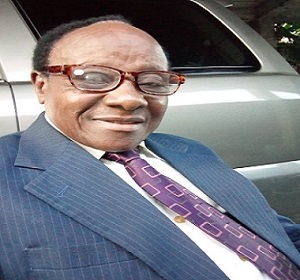
Hello! I'm
Professor
Ohiri Innocent
Author, Writer, Actor, LecturerOne Man. One Mission. Can He Go Beyond?One Man. One Mission. Can He Go Beyond?
ABSTRACT
The conventions and techniques of Nigerian traditional theatre practice have often been misunderstood and abandoned by our contemporary directors. This is because majority of them are products of western education. Consequently, there have been several attempts to judge Nigerian traditional theatre techniques by their western “near equivalents”, and by western standards. There is, therefore, the need for a proper explanation of the uniqueness of Nigerian Traditional theatre conventions and techniques. This work contributes to the satisfaction of this need by explaining the propinquities as well as the differences between Nigerian traditional theatre techniques and those of the western theatre. It does this in relation to the director’s use of stage and body positions. By explaining the uniqueness of these conventions and techniques, this work recommends that Nigerian Traditional theatre practice should not be judged by western standards.
INTRODUCTION
Majority of our contemporary theatre directors are western-oriented. This is as a result of the fact that they are products of western education which, in countries like Nigeria, focuses greater attention on western methods, considerations and techniques of directing with little or no considerations given to traditional African techniques and conventions. Because of this fact, it has been very challenging for most of such directors to understand the nuances of Nigerian traditional theatre practice. Quite often, there have been serious attempts to appraise Nigerian Traditional theatre productions from a western perspective. The result has been the dismissal of Nigerian traditional theatre practice as crude and devoid of good artistic reasoning. There is need therefore, to appraise Nigerian traditional theatre practice from the Nigerian perspective and on its proper merits. This will reveal its real nature and nuances and also enhance its “Nigerianness”. It will also re-awaken interest in traditional theatre practice and also create a meaningful awareness of the good tenets and conventions of traditional Nigeria theatre practice. It will provide explanations for the discrepancies in the nature and functionalities of Nigerian traditional theatre practice viz-a-viz other theatre traditions of the world.
To achieve the above purposes this work focuses on the directing techniques and conventions guiding traditional theatre practice with the aim of educating the young directors and creating the necessary awareness. It focuses on these techniques, conventions, and guiding principles as employed in Mbaitoli traditional theatre practice by two notable and popular traditional theatre troupes in the Mbaitoli clan of the Niger Delta region of Nigeria. These troupes are the Lomajika Theatre and the Wizi Traveling Theatre.
A Brief History of Mbaitoli
Mbaitoli clan of the Niger Delta region of Nigeria possesses a good wealth of theatrical tradition spread over the years to enhance cultural promotion, propagation and preservation. Located around the lower basin of the River Niger and in the centre of other Niger Delta clans, it promotes and witnesses immense interaction with surrounding clans.